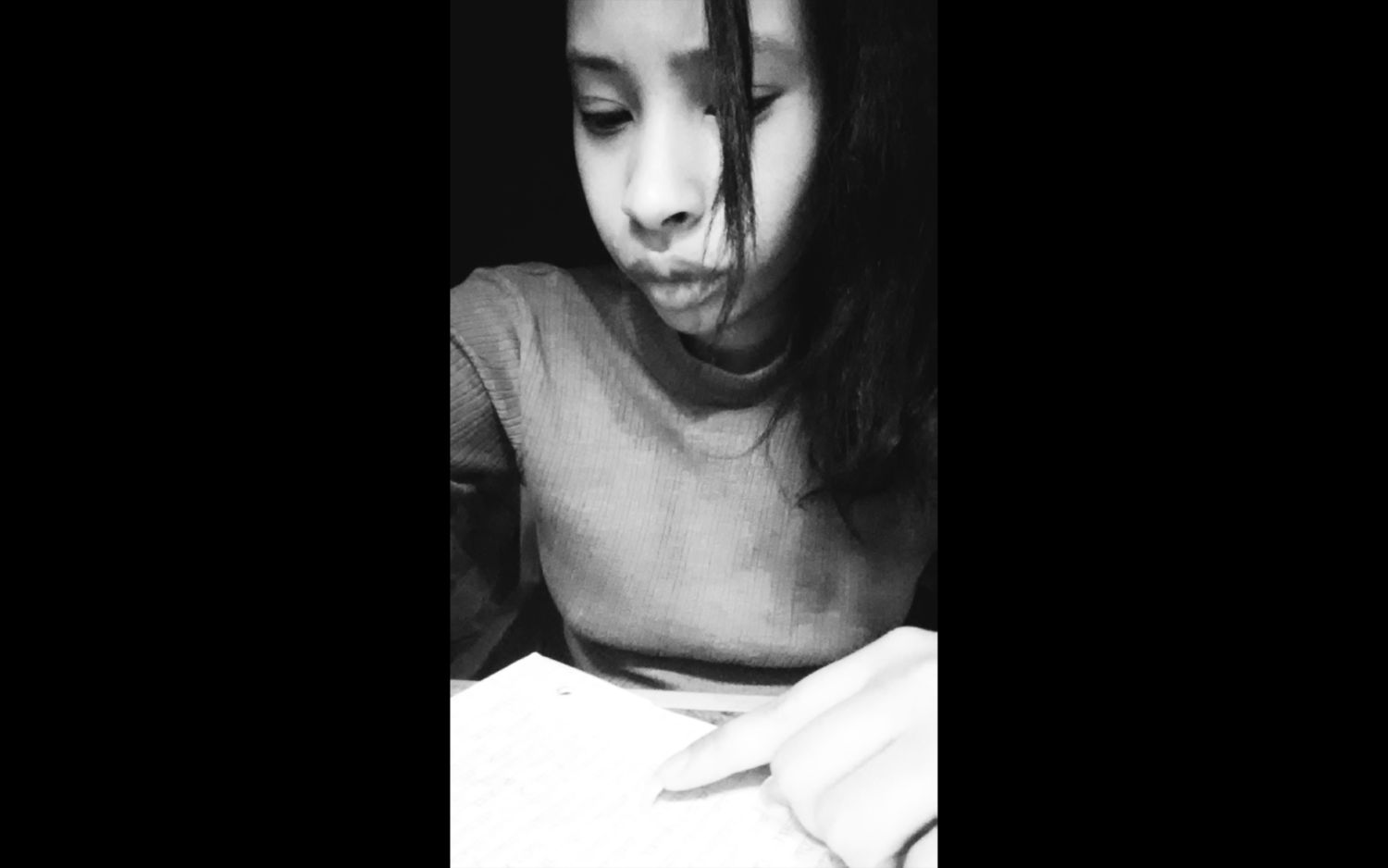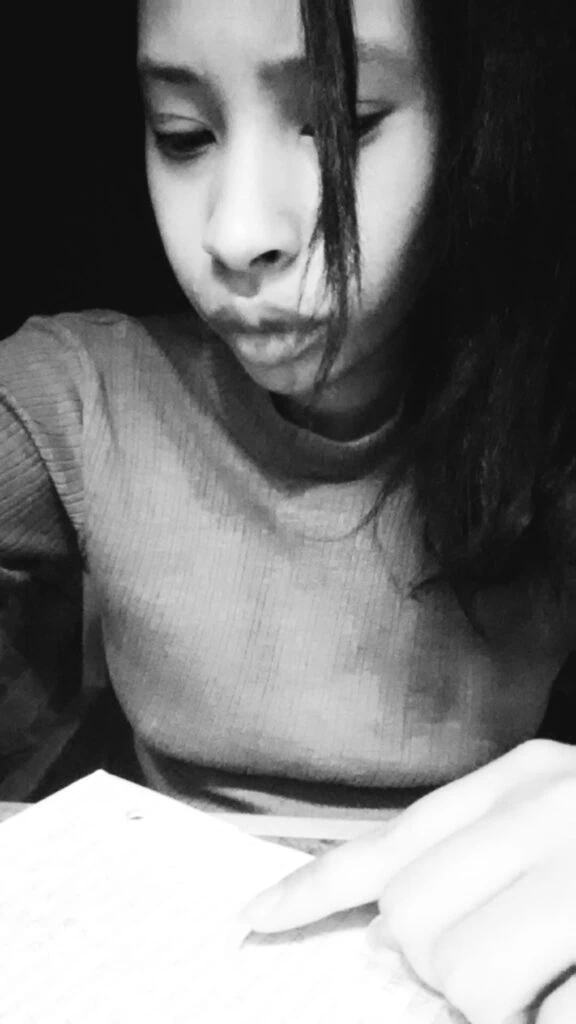I was named after Fallon Carrington. Apparently, I looked like her and have a similar energy: immaculate dark, nightly hair, flair and the gall to look down my nose if I disliked something.
My namesake foresaw a talent for performance, something I neither understood nor aspired to. Most of my quirks are derivatives of a neuroatypical ‘talent’ of charming everyone with a clever, deadpan “sense of humour.” Rather, they make up an unambiguous honesty that many people think is too scandalous to be real — and must therefore be something I fake to entertain them.
Turns out, many people can’t tolerate the idea that deceit and exclusion are pillars which uphold their sense of reality. They propagate intolerance, en masse, which comprises nominal, colonial truths.
Then, I came to Dalhousie. I was a model student. I still am. Funny how being in the classroom makes me think so much about what I’ve been taught outside of it.
While I was taught to expect my anguish to bring good fortune, a prosperous hereafter still awaits. My pains conversely taught me hypervigilance. Immediacy offset my sensory processing. Lifelong traumas embedded in my positionality.
It also didn’t help that I was an undiagnosed – albeit problematized – person with autism. I was impaired by the worsening symptoms of what would later be known as a neurodegenerative disease.
This lesson showed me that people cruise through postcolonial chains of command to say boundaries don’t matter, that any outcome can be rigged as if nobody has agency. This primed me to keep an eye out for fated letdowns. No matter where I went, there was always an assurance of harm. Always. I was also taught to conform by those who bullied me for my neurodivergent behaviours — along with a motley of dismissals and misdiagnoses.
Finally, my neurologist declared “Fahr’s syndrome.” That spoke to my imbalance, pain, waning memory and blackouts that were reckoned to be seizures.
Then, an audiologist declared “misophonia.” I found it ironic, as people could so easily listen to dissonant logic — and here I was, struggling to cope with the sounds around me.
Later, a psychologist declared “autism.” This was one explanation for my acutely-tuned sense of justice. People expect me to follow their rules, then claim exceptions in situations where I have to sacrifice my own morals.
These lessons struck me cold. They made me think of my father, who shared that he wanted to name me Cassandra. A name I identified with through mythology, she was one of the princesses of the city of Troy.
Just like that Cassandra, I proved inopportune because I was too literal and observant — and thereby cursed to be disbelieved in spite of my foresight. I learned that it doesn’t matter if people sink or swim. Everyone coasts through life.
And here I am plunged in an ocean of loneliness, barely afloat. I act counterintuitively to express amenity, knowing that most people still misread who or how I am.
* * * * *
Most people create arbitrary metrics of value, favour and identity, which make for their own smooth sailing. For instance, partnered cis-heteronormative identities and relationships between able-bodied personae are depicted as sites for fantasy fulfilment. Not sites of authenticity, freedom, connection or reciprocity — sites of fantasy fulfilment.
People need to fantasize. Characterized by a suspension of gross individuality, fantasy trumps belief and congregation. Performativity legitimizes the supremacy of artifice and rejects whatever it fails to pathologize.
People make decisions based on the marginal utility of others — which decreases over time. Novelty is reserved for the young and inexperienced who grow to discover that no mercy is spared. There is no truth, nothing left to believe in or congregate for.
I learned those who offer belief do so under the guise of power. Yet they hold comparatively small, if any, real sums in contrast to forces which control capital goods. This entails social justice language, insights by privileged individuals who aspire to monetize anything they can.
Vernaculars are created to dignify the experiences of marginalized peoples. Seeing institutions big up all the skinfolk — who sure as hell ain’t kinfolk — taught me the appropriation and subsequent exploitation makes these tidings meaningless. Mainstream media relay familiar paradigms that imply my objectification or dispossession. All of which may be embodied by paid personae and prosperous corporate interests, which are responsible for worsening disparities.
However, I learned that capitalism and conquest are exemplified by everyday people. The micro-aggressions people seldom address. The uncritical conformity that inclines one to be less equitable and more complacent. The politics of respectability which cow any difference or dissent.
Think of the skinfolk who align themselves with oppressive institutions, although they claim to identify with — then steal from — the very marginalized peoples they suppress, alienate and strive to disempower.
* * * * *
The interests of transparency, solidarity and so forth always seem to necessitate my anguish.
Anguish remains the outcome, no matter how much I am prompted to overshare, caretake or aid others. There is no love lost from those who demoralize marginalized positionalities that continue to suffer from what systemic disparities have been — and still are — imposed upon me.
I grow weary and, rightfully, pessimistic. I resolve to be more mindful, even ignoble so as to thwart my oppressions or letdowns, but my intuition grows numb in my effort to minimize myself to please a greater good. So, I find myself misguided time and time again.
However, I have been more mindful lately. I need to be. Health-wise and hope-wise, this need is equally necessary and rational. I have seen that futility always marks the end regardless of the means. No matter the ethos, all are eclipsed by the same monopolistic overcast whose purpose is to repress, suffuse, monetize and ultimately terrorize my efforts.
Explicit.
Covert.
Definitively pervasive.
Upon further reflection, I learned one reason I despise appropriation is that I find myself so deeply unnerved by those who misunderstand me. When they twist my words or project a meaning that simply isn’t there.
This is particularly devastating to me, as a Black and Indigenous woman, within institutions riddled with violence, where people want reasons to hate me and reasons to make others hate me just as well. People sometimes liken me as pretentious or contrary because I am honest to a fault. I have a strong aversion to politics which are performative. I say what I mean and mean what I say, direct and analytical, in that my praxis centres on acknowledgement, authenticity, integrity and care.
I tend to intellectualize my feelings more than I feel them. I find myself doing the same for others.
For the mentors who profess to care for me, but whose professional bonds legitimate their complacency at the expense of others including myself, I feel scared that my entire academic career — spanning over a decade from undergrad to doctorate — was for naught.
For the partner whose elusion could be rationalized as immunity to my fragility, softness and dependence despite the love I feel, the divine intimacies we’ve shared.
For the peers whose loyalties are bound to shift, if not dissolve no matter how much grace or space I give them.
For the relatives whose claims to me are disjointed, even though their convictions are linked.
For the university whose recruitment personnel and advisers swore there was a place for me, a need for professorship I could fulfill once I cross the finish line. Now, whose faculties lament their closure to new hires, myself included, even as they lament equitable vacancies.
Knowing this, it takes work to unlearn the hypersensitivity vindicated by trauma and marginalization. All of which culminate in profound sadness, shame and intrusive thoughts.
Although this may be a survival mechanism, it ultimately centres others over me.
Privileged positionalities know they can hide behind niceties, seemingly-left politics or whatever else to deny their complicity, even their own privilege. Except, being nice and remaining silent against oppression is also violent.
They sputter when I share my experience, claiming the inhumanity I fare against is so atrocious that it leaves them speechless, but utter not near one word when given ample opportunity to speak truth to power.
Supremacy is wielded to silence. Unlearning my obsessive fears and paranoia amplifies what hope, joy and comfort are systemically silenced. It allows me to be a loser — agonizing over what I’ve lost, am losing or stand to lose — without intensification of what I just endured when I strive to live beyond the limits of my oppressors.
Now when I internalize my pain or flaws, it’s not a matter of discerning better from worse. It’s knowing where I stand and resolving to never lose sight of the truth.



Recent Comments